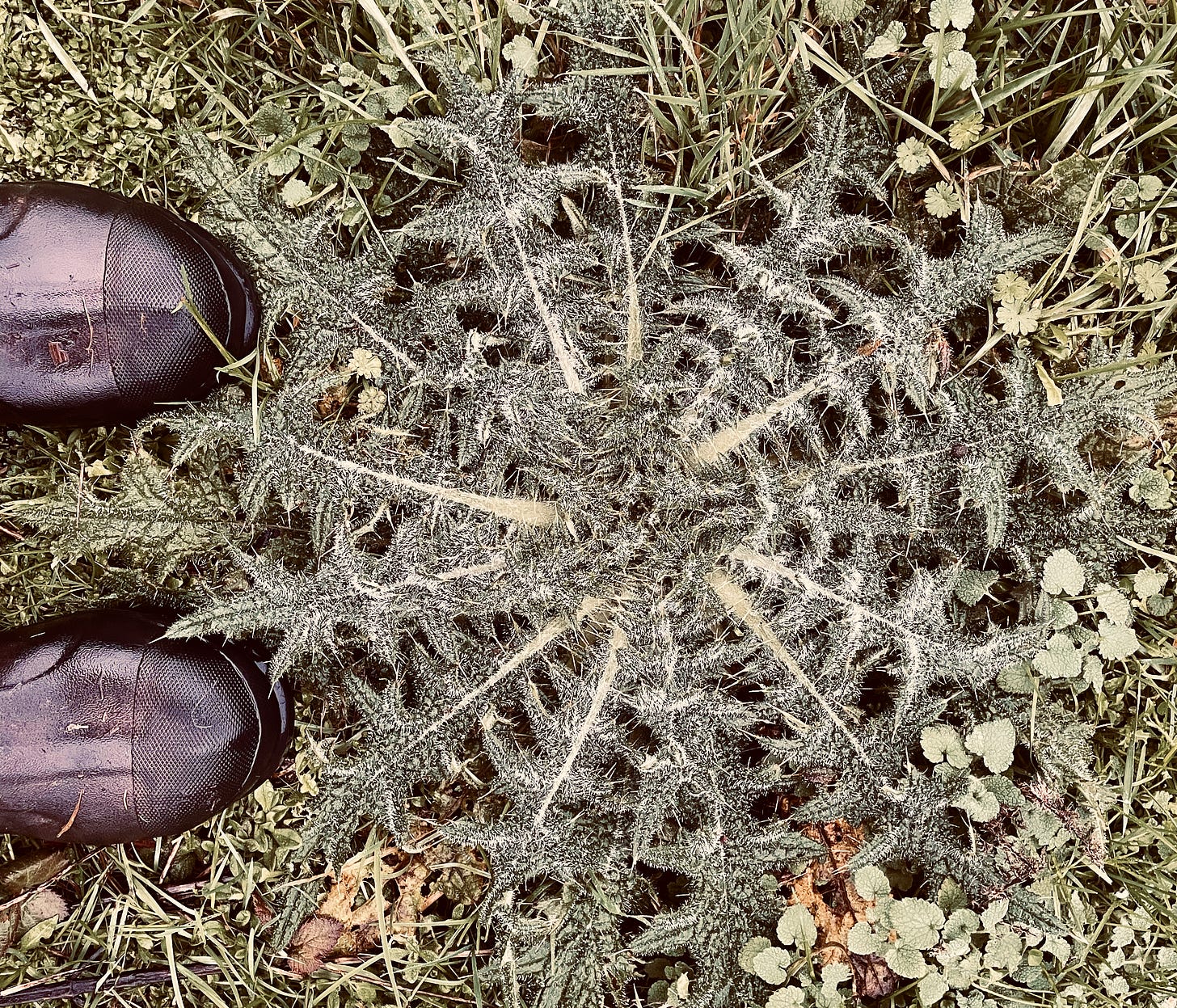This Week in Joyful Practice: (Revisiting) The Ecstasy of Destruction
I think I've let it go and then I let it go some more
For a little while now, Sarah and I have been discussing permission as it relates to our publishing schedule here at the Scrap Heap. Because we love creative constraints, we’ve set weekly deadlines and then we’ve dutifully stuck to them. And then lately, because we sometimes lead parallel lives, we were both traveling on and off for complex caregiving endeavors. We gave each other permission to loosen up the deadlines, and that felt so generous and good.
We’ve also given each other permission to revisit old posts and so today, I’m reaching for this one (below), the Ecstasy of Destruction.
This morning, during a virtual writing workshop the teacher, BK Loren, asked us to list, among other things, 5 things we would never ever do.
For some reason, ‘set a house on fire’ was the second list item that came to me and then, over the next ten minutes, that image grew inside my brain. I played with turning it into a card.
I titled the card Conflagration and it resonates for me right now in this moment of deep change.
Middle age is so full of changes and reckonings. It’s something that no one prepared me for. It is both the hardest and most beautiful era of my adult life.
Here’s a conflagration song, one of my faves, and below that is a short essay on destruction and regeneration:
A couple of months ago, my son stopped attending fifth grade. It happened gradually, with him begging to be picked up early or dropped off late, and then suddenly: he would not go nor would he even talk about school. Initially I interpreted it as an act of rebellion, though part of me knew it was more complicated than that. I wanted to slap a bandage on the problem, to find a way to get him back to school—any school—as soon as possible. I wanted to avoid disruption. I wanted to keep living my life, to pretend I was walking along the timeline I’d imagined for myself, the one where my kids progress in a linear fashion and simply need me less and less over time. But I’ve been learning about mental health and neurodivergence and I’ve come to understand that sometimes won’t actually means can’t. It looks like my kid is refusing to go to school, but the truth is that the larger world feels unsafe to him, and his body won’t bear it.
A few weeks ago, on a podcast for parents raising “differently wired kids”, I learned about the concept of positive disintegration, developed by Polish psychologist Kazimierz Dabrowski. It’s some heady stuff, but the gist is that our mental breakdowns—our phases of acute anxiety, depression, activation—are opportunities for us to grow into our more attuned, authentic selves. Our neurotic symptoms are actually our body nudging us towards wholeness.
Or, to put it another way, my school-refusing son, when he was only three years old, once told me that he came here to destroy me. We were having a bedtime conversation about when he was an infant, and he turned to me and said, “I came here to destroy you,” as if my reference to his babyhood reminded him of his calling.
A friend of mine pointed out to me that this is exactly what parenting is, to be made and unmade over and over. Other things are also this: the death of someone close, a move to an unknown place, falling in love, breaking up. Change destroys.
I have for years carried the wisdom of my friend’s interpretation, but never felt it as keenly as I do now, now that I’m home remaking a life. We coexist in a vacuum, he and I: Unschooling. De-schooling. We are defined not by what we are doing but by what we are not doing. The longer we stay in this new way, the less I want to return to the old way. But still, this new way is more of an an un-way.
Last year I made the leap of trading my full time job for some part time work so that I could figure out what’s next for me. I hoped that the transition might be an easy one, seamless and fluid, that new kinds of work might find me and bring me joy. I thought that maybe I could avoid the slog of reinvention.
But the new kind of work that found me is this: holding space and bearing witness; sitting with the discomfort of not-knowing. Learning, for real, about how little I control. These are hard things for me. I feel so destroyed. I feel so liberated. I feel so tired.
Though this newsletter is called The Scrap Heap, I’m thinking right now about the ash heap, about how fire too is a fertilizer, one that requires letting go of what grew before. These days, I walk past my backyard garden and see that it still looks soggy from the winter rains. There are dried out stalks that I still haven’t bothered to pull, two old squash rotting, some horseradish that wants to take over everything. This garden—it just isn’t calling to me right now, and I’ve been telling myself that’s all right. It’s okay to miss a season (though there is grief in that). It’s okay to let things be as hard as they are. And there is a weird kind of ecstasy—a new kind of empowerment—in just feeling the tension and letting it be.




